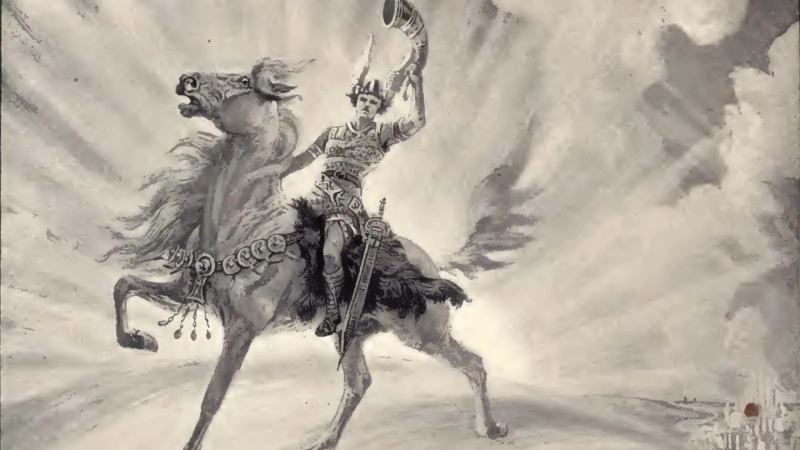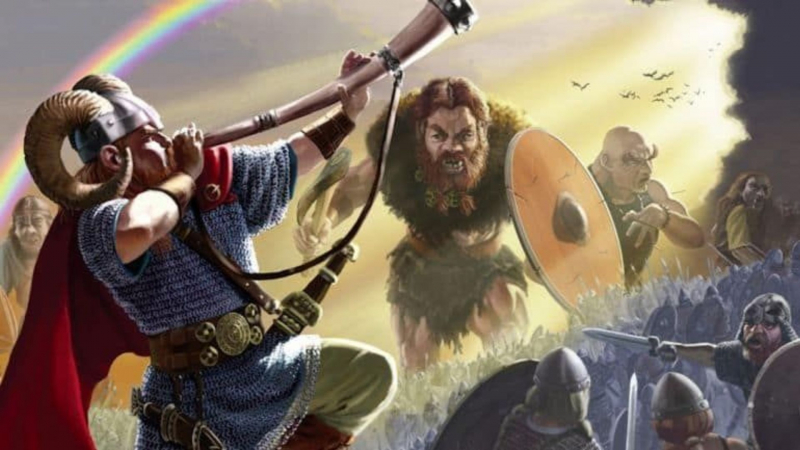Heimdall

A Norse god named Heimdall keeps an eye out for intruders and the approach of Ragnarök. The burning rainbow bridge Bifröst connects the sky at his home, Himinbjörg. He is claimed to possess clairvoyance and keen senses, particularly hearing and sight. Furthermore, there is some ambiguity in the description of God and his possessions. For instance, Heimdall is known as "the whitest of the gods" and has gold teeth. Additionally, Heimdall is the owner of the golden-maned horse Gulltoppr and the echoing horn Gjallarhorn. As the progeny of the Nine Mothers, he is also attributed with creating social strata in human society.
The Poetic Edda, which was put together in the 13th century from older traditional sources, contains the word Heimdall as a sign of foresight. The Prose Edda and Heimskringla, both written in the 13th century, both make reference to God. Similar to this, Heimdall appears in skaldic poetry as well as an English runic inscription from the Old Norse language. There are still two lines of lost poetry concerning the god Heimdalargaldr. The nature of God has given rise to various opinions among scholars. Due to the cryptic nature of these attestations, these theories include his relationship to sheep, borders, and waves.
Furthermore, it is unknown where the name came from. However, one source contends that "Heimdall" means "the one who brightens the world." In addition, Heimdallr and Mardöll, another of Freyja's names, may be linked. Moreover, Heimdall also has three other names that have been recorded: Hallinskii, Gullintanni, and Vindlér or Vindhlér. Although the name Hallinskii is mysterious, there have been numerous attempts to understand it. Gullintanni means "the one with the golden teeth" in the same way. Similarly, Vindlér (or Vindhlér) means "wind-sea" or "the one who guards from the wind." All three have given rise to numerous ideas about god. Like many other elements of Norse mythology, Heimdall has been referenced in a number of contemporary works.











